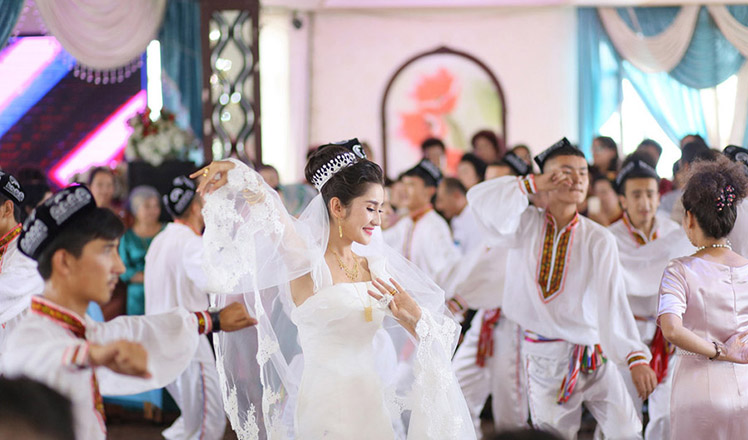What constitutes a libel in a marital case
Updated: 2016-08-19 08:32
By QIAO XINSHENG(China Daily)
|
||||||||
Ma Rong, wife of actor Wang Baoqiang, entrusted her lawyer to file a lawsuit in a court in Beijing's Chaoyang district on Tuesday, accusing the actor of maligning her reputation by writing on his micro blog that she had an affair with his agent for which he was divorcing her. Ma has demanded that Wang delete the post and apologize to her.
The Chaoyang court has formally accepted the lawsuit. But people cannot help but wonder why Wang cannot make a statement saying he was dissolving his marriage with Ma after he found that she was cheating on him?
Some lawyers argue that a couple's marital matters-love, affection, arguments, disloyalty-are part of their privacy if they are not known to others and thus should not be made public by anyone, husband and wife included. Adultery, too, is part of a person's private affair and therefore should not be revealed even by the husband or wife, the lawyers say, because it violates the person's privacy rights and could constitute a libel.
But others believe a person's privacy is not boundless, and if a person's seemingly private matter constitutes a violation of others' legitimate rights, it can be made public.
This debate fails to touch the essence of the problem. There are no explicit stipulations in China's laws on privacy protection, although there are legal clauses on a person's right to reputation and dignity. If one person damages another's reputation, he or she should undertake civil liabilities or bear criminal responsibility. The same applies to cases related to personal dignity. So if disclosing an individual's personal information unknown to others harms his/her reputation, it becomes a typical case of libel or character assassination.
In the Wang-Ma case, the actor's disclosure of his wife's extra marital affair does damage her reputation. But Wang's act is essentially aimed at safeguarding his marital rights and thus cannot be construed as a libel, especially because he claims to have sound evidence about Ma's extra marital affair, which is a violation of their marital contract.
In legal terms, the protection of a person's right to privacy does not mean the protection of all of his/her private matters. Many countries have enacted specific laws on such kind of protection. If the protection of citizens' right to privacy clashes with national interests, public rights or other citizens' legitimate rights and interests, it can be legally restricted. In other words, no individual can refuse to provide evidence for the protection of national interests by citing his/her right to privacy. The same rule applies to cases that involve the protection of public interests or other citizens' legitimate rights.
Ma's affair is a serious violation of her husband Wang's marital rights. And if Wang had not made her disloyalty public, he could have been in a disadvantageous position in a future lawsuit as the defendant. By revealing Ma's extra marital affair, Wang has prevented Ma from possibly confusing public opinion in the future.
Prioritizing the protection of individuals' right to privacy even in cases that could damage national interests or other citizens' rights is a sure recipe to fuel moral chaos in society. It is absolutely necessary to protect individuals' right to privacy, but this principle has a precondition-that such protection does not damage national or public interests or infringes on other citizens' legitimate rights.
If a totally unrelated person reveals an individual's extra marital affair, then a lawsuit can be filed against the former for damaging the latter's reputation. But such a lawsuit is uncalled for when one of the spouses comes out with such a disclosure. That no one can benefit from his/her illegal acts should become one of the basic codes of conduct.
The author is a professor of law at Zhongnan University of Economics and Law.
- Malaysian authorities say ship carrying diesel hijacked
- Army commander: THAAD would 'easily affect' China-US ties
- Twin panda cubs confirmed born in Vienna zoo
- Four killed in boat collision in Greece
- Premier Li to receive Aung San Suu Kyi
- S Korean president names 3 new ministers for partial reshuffle

 Zhao wins China's first gold medal in men's taekwondo
Zhao wins China's first gold medal in men's taekwondo
 World's top 10 innovative economies
World's top 10 innovative economies
 Dancing, food and religion, all in a Xinjiang wedding
Dancing, food and religion, all in a Xinjiang wedding
 Men's table tennis overcomes singles loss to win team event
Men's table tennis overcomes singles loss to win team event
 China edges Brazil in volleyball quarterfinals
China edges Brazil in volleyball quarterfinals
 China's women's table tennis team sweeps gold
China's women's table tennis team sweeps gold
 Artists build sand sculptures to greet upcoming G20
Artists build sand sculptures to greet upcoming G20
 Top 10 biggest auto makers of 2015
Top 10 biggest auto makers of 2015
Most Viewed
Editor's Picks

|

|

|

|

|

|
Today's Top News
Trump outlines anti-terror plan, proposing extreme vetting for immigrants
Phelps puts spotlight on cupping
US launches airstrikes against IS targets in Libya's Sirte
Ministry slams US-Korean THAAD deployment
Two police officers shot at protest in Dallas
Abe's blame game reveals his policies failing to get results
Ending wildlife trafficking must be policy priority in Asia
Effects of supply-side reform take time to be seen
US Weekly

|

|







